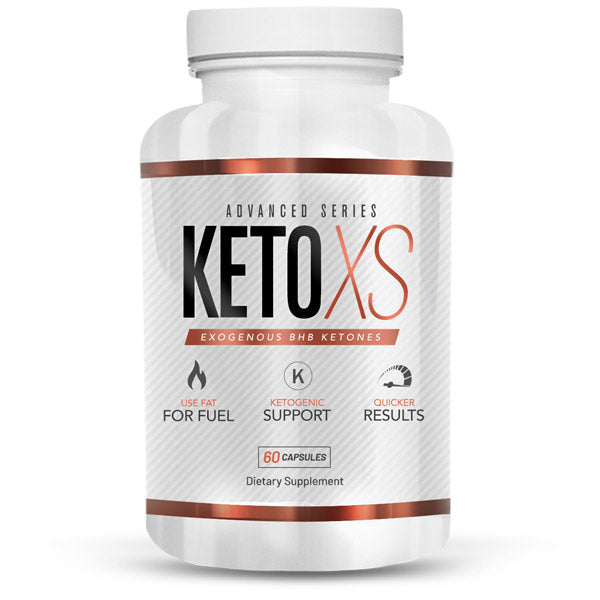Keto 101: Your Introductory Guide to the Ketogenic Diet
Table of Contents
The ketogenic diet is the hot, new dieting trend right now. Unfortunately, there's a lot of misinformation about it floating around. If you're thinking about starting a ketogenic diet, then you've come to the right place. We will help you sort fact from fiction and give you both sides of the ketogenic debate.
What, Exactly, Is the Ketogenic Diet?
The ketogenic diet is a diet where you have to track your macronutrient intake in a very specific way. There are three different types of macronutrients: carbohydrates, protein, and fat. The standard American diet - which is the diet that most people follow and the one that the FDA still recommends as healthy despite recent medical discoveries to the contrary - is the diet that most Americans are currently eating. The SAD tells people to get most of their calories from carbohydrates, suggest that they try and consume more protein, and advises them to eat as little fat as humanly possible. The ketogenic diet is the exact opposite of that.
The ketogenic diet suggest that you get between 60% to 75% of your calories from fat. Beyond that, the ketogenic diet recommends that you get another 15% to 30% of calories from protein. Lastly, fewer than 5% to 10% of your calories should come from carbohydrates. The carbohydrates you do consume should be as high in fiber is humanly possible. Following these guidelines is the best way to get the maximum health benefits from the ketogenic diet.
What keto is Not
The first and most common misconception about the ketogenic diet is that it's the same thing as the Atkins diet. People get the diets confused because both emphasize low carbohydrate intake. But Atkins emphasizes high protein and some fat, whereas keto emphasizes high fat and moderate protein. Because of that, the Atkins diet does not actually make your body fat-adapted the way keto does (but more on that in a minute).
Some people are scared that eating a ketogenic diet will give them ketoacidosis. This is also a misconception. Ketoacidosis is a toxic level of acidity in the blood when your body produces way too many ketones. It is most common in people with type 1 diabetes, and only happens in people with type 2 diabetes very rarely. If you are healthy, you are unlikely to develop ketoacidosis from a ketogenic diet.
Your body will go into something called ketosis, which is the natural and healthy process of burning your stored fat for energy. The reason this misconception exists is because ketosis and ketoacidosis sound so similar. But while the former can be life-threatening, the latter is actually really good for your health.
Lots of people claim that the ketogenic diet is a new fad and that it will disappear as quickly as it appeared on the scene. But the truth is that keto has been around for over a century. It has been used for decades to treat neurological disorders. The reason it's so popular now is because doctors only recently realized that it had weight loss and general health benefits, too.
Benefits of a Ketogenic Diet
The main benefit of the ketogenic diet is that it sends your body into ketosis. When you're in ketosis, your body produces an alternative energy source known as "ketones" or ketone bodies". They are a cleaner, healthier form of energy for your body than carbohydrates are. Your brain works better on ketones. Not only will your cognitive function improve in the short-term, but feeding your brain ketones may help reduce your risk of developing age-related brain disease over time.
When you've been on the ketogenic diet for a while, your body becomes "fat adapted". When your body is fat adapted, it burns its own stored fat for fuel when ever you go too long between meals. And no, this isn't "starvation mode". You would have to go several days or even weeks without food before your body starts literally starving. But when you're fat adapted, you'll feel calm, alert, and satiated between meals - as opposed to feeling "hangry", tired, and suffering from brain fog when your blood sugar drops (as it does for most people on the standard American diet).
The ketogenic diet may help people regulate their blood sugar and even improve their insulin response. This can help some people improve their type 2 diabetes symptoms and possibly reduce their need for insulin. But you should make sure to tell your doctor that you want to start keto before altering your diet too drastically.
Challenges With Keto
Here's where the other shoe drops on the ketogenic diet. Some of the more challenging aspects of the diet are:
- Getting enough fat. The food choices at your local supermarket will likely still reflect the standard American diet, with shelves stocked full of "fat free" and "reduced fat" options instead of full-fat ones. This can make food shopping more difficult
- Getting the right kind of fat. Your fat should come from whole food sources like avocado, olive oil, free-range dairy, and grass-fed animals. Most processed foods contain unhealthy trans fats and hydrogenated oils which can cause cardiovascular problems
- Counting macros and calories at the same time. Some people just don't want to do that much math, which is understandable
- Your social life may suffer. You may feel isolated or unwilling to attend social functions because of the lack of keto food choices, or the overabundance of unhealthy ones
- The "keto flu". If you're switching directly from the SAD to keto, you may experience flu-like symptoms for anywhere from 3-14 days while your body makes the switch

